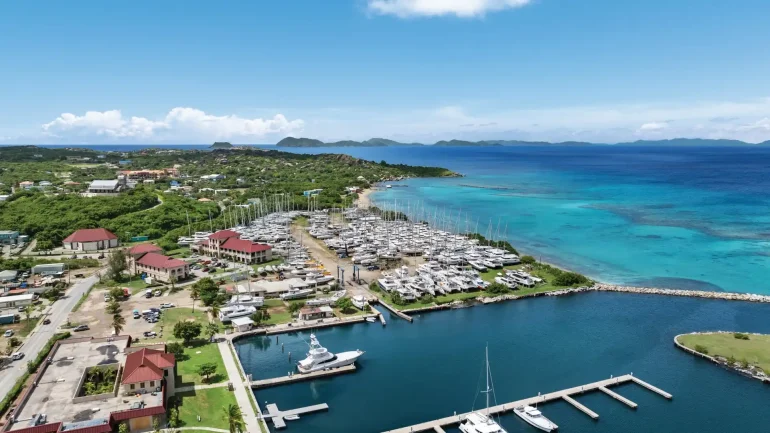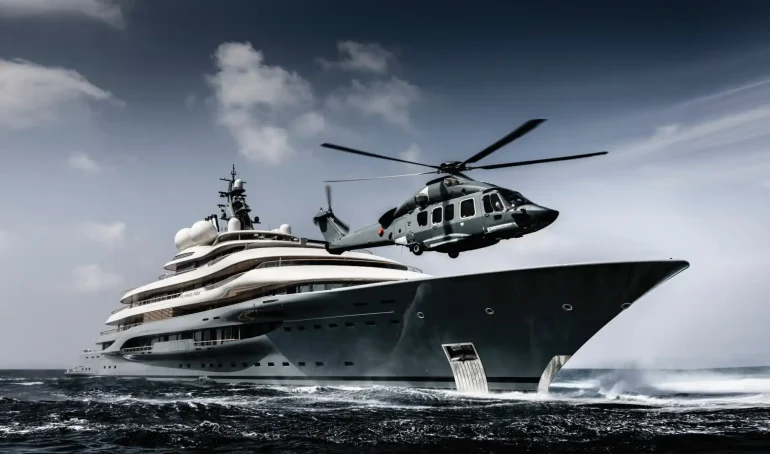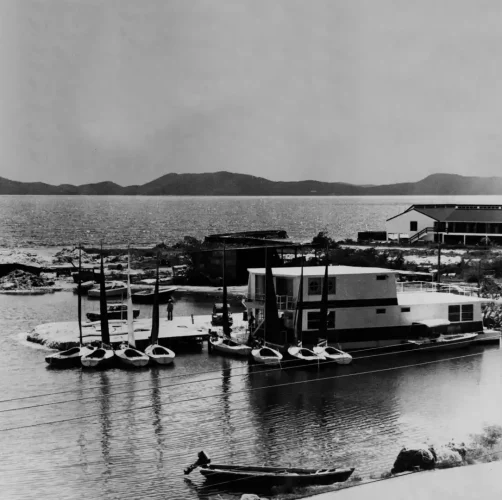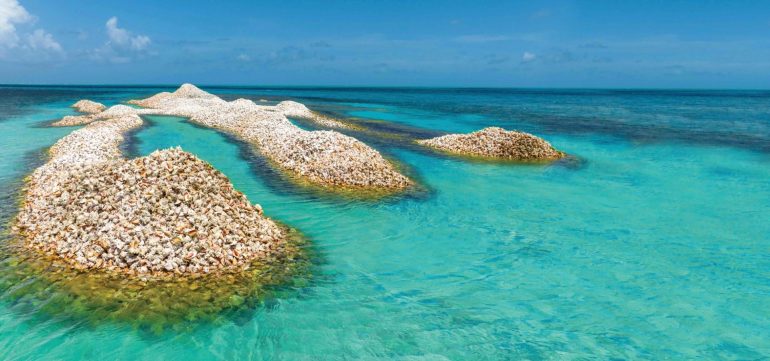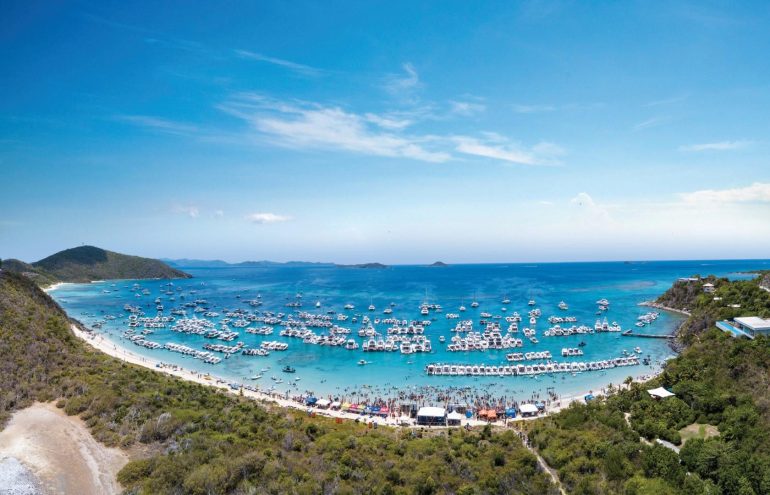Yacht Brokers in the BVI Are Outselling Their US Competitors – “I can’t speak for all other brokerages,” says Chris Simpson from BVI Yacht Sales, Ltd., “but, generally, we’re doing better than most US brokers.” The driving force behind the particularly competitive pricing in the BVI, he explains, begins with ex-charter boats. “We have more bareboat charter boats per square mile on this island than any other place on the planet, including the Mediterranean. At any one time, there are probably close to a hundred of these ex-bareboats, of one description or another, for sale within the Caribbean.”
“The market is therefore particularly competitive,” Chris continues, “especially when you consider the bareboats being released by the big companies, like Moorings or Sunsail, where they can release up to about twelve of the same model and year on any particular year. It generally happens more through the summer months when there are less charters. That’s` also when more of the boats get phased out, fixed up and tidied up to a certain standard before they get handed back to the owners or put up for sale, resulting in a lot of the same model on the market at the same time. He who prices lowest wins; it’s as simple as that.”
Chris explains that all brokerages in this region, to a greater or lesser extent, have to price against this stiff competition. “If we don’t,” he says, “then the buyer is not going to see the value in our boat versus our competitor's boat, so it’s very, very competitive.” But it’s not really the Moorings or Sunsail who determines the prices. “The Moorings don’t choose the pricing. The seller chooses the pricing. He sets the tone. He’s advised by his brokers and, if other sellers want to generate interest in their boat, they have to follow suit.” And this competitive pricing doesn’t only affect ex-charter boats. “If you have a private boat that’s never been chartered, you still, to an extent, have to compete with 60% of the boats listed, the ex-charters boats. If you own the same model of boat, but it’s never been chartered, then that boat is a much more valuable boat. The engine hours are going to be a tenth, or an eighth, or a sixth of a charter boat. The engine hours also reflect the wear and tear generally on the whole boat, but nonetheless, a buyer looking on the internet will see that boat, and he will wonder ‘Why is that boat more expensive than that boat?’ he therefore has to be convinced that the price differential between a private boat and a charter boat, same year, same model, combined with the additional equipment and much less wear and tear is enough to make the private boat purchase worth his while. It’s a tough marketplace for private boats, and you have to price it a little bit more keenly than in the US where they don’t have much competition from the bareboats and charter boats.”

The type of person who buys a boat has changed as well, and that affects they type of boat that’s selling. “Buyers have evolved over the last decade or so, two decades, really. Few of us have enough time in our lives to enjoy leisure for weeks on end. We’re all too busy earning the money to afford to buy the boat. Twenty years ago, thirty years ago, it was different. People didn’t have so much money, boats were smaller, they were less expensive, they weren’t so nice, but you could get on one, and you could go sailing for three months. You could go to the Pacific. Most of us can’t do that anymore, so you have two weeks, maybe. These kind of buyers are more ‘coastal cruisers’, an industry euphemism which has become popular in that they’re doing more coastal sailing and less blue-water sailing. They can come down here and talk themselves into the idea that even though they’d love to have an Oyster, a Hylas or a Swan, the fact that this type of boat could be three times the price of a Beneteau does not justify the extra expenditure for the time that they can get enjoy her. Furthermore, the production boat can do what they need her to do because the sailing that they’re going to do is not going to take them into the middle of the Pacific, so in reality they don’t really need a heavy displacement boat. So what happens is that those heavy displacement boats have to price a little bit more competitively than they would if they were in the US because they are competing, to a much lesser extent, but still competing, with the 50-foot Beneteau that could be bought for less than $150,000. It’s a slight downside to the seller because they have to price their boats lower, but on the upside, they will sell their boats sooner and quicker. The reasons being: A. The pricing is better than it may be in the US and B. We’re living in an absolutely gorgeous area which is a perfect place to begin cruising!”
Location. Location. Location. Aside from the competitive pricing, location is the second reason why yacht brokers in the BVI are doing so well. “We’re a thousand miles, almost directly to windward, of Florida. And sailing offshore to windward, almost regardless of who you are, is not a lot of fun. By buying here you can cut that right out. I’m dealing with clients right now who had their first boat shipped down here, but they decided it’s too small. They want something bigger, but they don’t want to go and buy another boat in the US and have it shipped down or have to sail her down. This is another area where we have much appeal in that we’re already in the tropics, we are already to windward of that big, long leg from the US, and basically, you can step on your boat, fix a few things, and then go sailing. You’re already here!”
But not everyone who buys a boat here keeps it here. Chris mentions a recent trend he's witnessed recently. “Foreign, non-North American buyers are much more keen to come and look for a boat here than they are in the US,” Chris says. “It started with this competitive pricing in the charter industry, we sell a lot of boats to Australians, for instance, who literally clean the boats up, sail them across the Pacific, take them back to Australia, enjoy having a year off as they sail the boat back through the most beautiful islands on the planet and then sell the boat for significantly more than they bought her for here. However, there are taxes, so it’s not a massive profit, but ten, twenty, or thirty thousand dollars clear profit with that money going towards financing their year off. In the yachting industry in Australia, it’s a known thing to do now, and we sell a number of boats each year to Australians and Kiwis due to this. To a lesser extent, we also do this with the European buyers. They come because they know the prices are better here than anywhere else. They come here, they buy the boat, and they sail her home across the Atlantic. Happily, this stream of buyers continues to come at us from Australia and Europe, primarily.”

The competitive pricing keeps foreign buyers from buying in the US as does that pesky thing called sales tax. “If you keep a boat in the US, almost in any state, you have to pay sales tax. That is a drag, if you can’t move your boat out of America because of seasonal timing you might get hit with that sales tax. We have no sales tax here. As a non-resident owner of a boat here, you’re only financial obligation to the government is temporary importation duty which is $202 a year. Thanks to the government for that. Keep that up as it helps to keep a very healthy marine industry here. People want to come here, they want to buy boats here, and they want to keep their boats here. Long may that continue!”
The strength of the dollar is also a factor with foreign buyers. “When the dollar is weak,” Chris declares, “the Australians and the Europeans find even more value in our boats. When the dollar is strong, our boats seem expensive. When the dollar is not strong, then we are in a fantastic position where we’ve got an unending supply of boats for sale, very competitively priced in a really nice location—it’s a great place to keep your boat, not only environmentally but also in terms of the government taxes being relatively low. So, all in all,” Chris concludes, “it makes a lot of sense to buy a boat here. It’s really just a question of whether or not you’re prepared to think outside the box enough to buy a boat outside your own country.”
